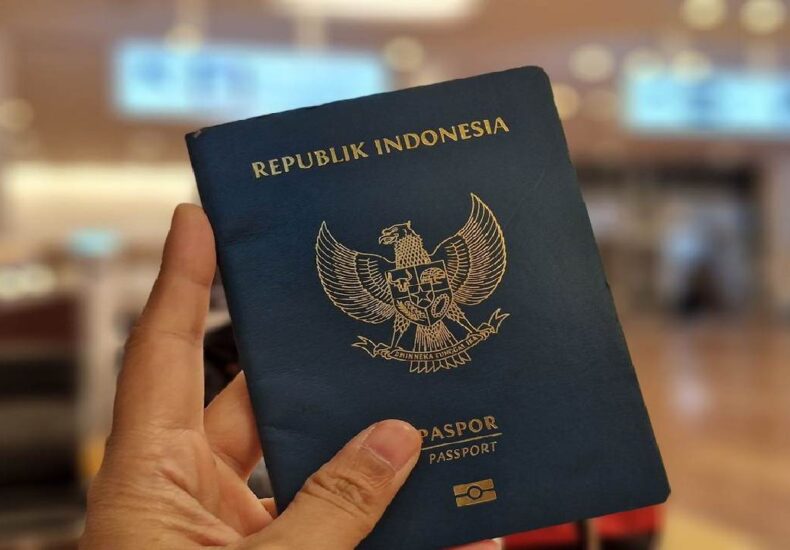
In 2025, Indonesian Passport Three Times Stronger Than Afghanistan’s
Fundacion Rapala – In 2025, the Indonesian passport achieved a stronger global standing, ranking 67th out of 104 countries, based on the latest report from Henley & Partners, a global citizenship advisory firm in London. Holders of an Indonesian passport can now travel visa-free to 73 countries, showing steady progress in international mobility. In contrast, Afghanistan’s passport, which remains the weakest in the world, allows access to only 24 destinations without a visa. For Indonesia, this milestone is more than a number. It represents better diplomatic ties, greater global trust, and growing respect for its citizens abroad. Each visa-free entry is a symbol of partnership and the country’s continued effort to strengthen international cooperation.
Fifth Strongest in Southeast Asia
Regionally, the Indonesian passport ranks as the fifth strongest in Southeast Asia, following Singapore, Malaysia, Brunei, and Thailand. Singapore still dominates the global list, granting its citizens access to 193 destinations without a visa the highest of any country in 2025. Malaysia and the United States share the same position with access to 189 countries. Indonesia’s progress shows gradual improvement in regional diplomacy and foreign relations. Although there is still a gap between Indonesia and top ASEAN countries, this ranking reflects a positive trend. For many Indonesians, a stronger passport means easier travel, broader opportunities, and pride in seeing their country gain more international recognition.
Greater Travel Freedom for Indonesian Citizens
Indonesian citizens can now visit 73 destinations without a visa, including Albania, Belarus, Brazil, Barbados, and several Southeast Asian countries. This broader access supports tourism, business, and education exchanges. The Indonesian government’s consistent diplomatic efforts and visa agreements have opened doors that once seemed out of reach. The change benefits students, professionals, and travelers alike, giving them easier access to global experiences. Every additional destination strengthens people-to-people connections and promotes Indonesia’s image as a peaceful and open nation. For many, these changes turn travel into a more affordable and less complicated experience an important factor for a country with a growing middle class and global aspirations.
Afghanistan Remains at the Bottom
While Indonesia celebrates progress, Afghanistan remains last in the global passport index. Afghan citizens can travel visa-free to just 24 destinations, such as Bangladesh, Cambodia, Dominica, and Kenya. The gap between the world’s strongest and weakest passports has never been wider. Christian H. Kaelin, Chair of Henley & Partners, stated that this inequality highlights how global citizenship and human rights are deeply tied to politics and geography. Ongoing conflicts and political instability have left many Afghan citizens trapped within borders. Their limited access reflects how fragile global mobility can be when security and stability collapse. The comparison between Indonesia and Afghanistan underscores the influence of international reputation and diplomacy on a nation’s freedom to move.
“Read More : Call to Earth Day 2025, Guard Your Green Space with Global Action”
Tracking Global Mobility Through Data
Henley & Partners compiles its Passport Index using data from the International Air Transport Association (IATA), covering 199 passports and 227 destinations worldwide. The index evaluates how freely citizens can travel across borders without prior visa arrangements. This year’s data reveals a growing divide in global mobility. Countries with stable governments and strong diplomatic relations continue to expand access, while those affected by war or isolation lose ground. For Indonesia, maintaining its rank requires continuous diplomatic engagement and effective foreign policy. Every visa-free agreement represents recognition of safety, cooperation, and mutual respect key values that support Indonesia’s place in the global community.
Passports as Tools of Identity and Opportunity
A passport is more than just a travel document. It represents national identity, belonging, and opportunity. Governments issue passports to confirm citizenship and allow citizens to move beyond borders. The strength of a passport defines how easily people can travel, study, and work abroad. For Indonesians, a stronger passport brings more freedom and confidence to explore the world. Meanwhile, countries with weaker passports face travel restrictions that can affect education and livelihoods. The growing gap between these groups shows that freedom of movement remains uneven. For Indonesia, improving passport power also means promoting fairness, equality, and greater international inclusion for its citizens.
Mobility as a Measure of Global Equality
The widening difference between strong and weak passports mirrors the inequality of global opportunity. Climate change, armed conflicts, and displacement continue to push millions to move across borders. Christian Kaelin emphasizes the need to rethink how nations view citizenship and human rights in this changing world. For Indonesia, its progress in global mobility brings new responsibilities. With greater access comes a duty to promote collaboration and humanitarian values on the world stage. As Indonesia’s passport becomes stronger, it stands as a symbol of resilience and hope proof that diplomacy, cooperation, and peace can unlock doors that once seemed impossible to open.